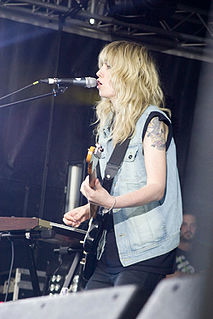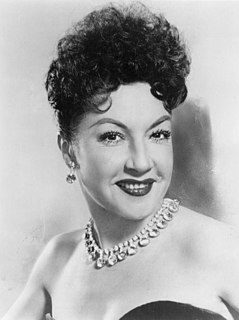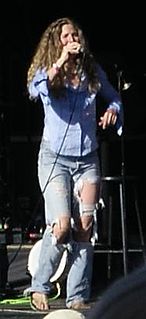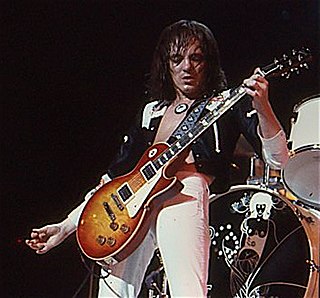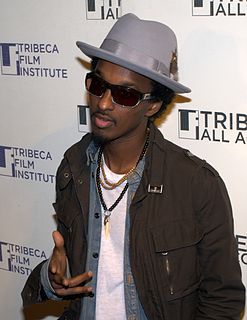A Quote by James Altucher
Somebody has to be on stage, and some people have to be in the audience. That's the only difference. Don't put any thought as to why you are on the stage or how you need to be 'better' than the people in the audience. You aren't better. You're simply the speaker.
Related Quotes
Normally classical music is set up so you have professionals on a stage and a bunch of audience - it's us versus them. You spend your entire time as an audience member looking at the back of the conductor so you're already aware of a certain kind of hierarchy when you are there: there are people who can do it, who are on stage, and you aren't on stage so you can't do it. There's also a conductor who is telling the people who are onstage exactly what to do and when to do it and so you know that person is more important than the people on stage.
I didn't have traditional stage fright. If there was 500 people in the audience or three people in the audience, it didn't really make a difference. What made a difference was the conductor. Everything that I was scared about as a drummer was him. It was his face. It was whether or not he'd approve of my playing.
I'm not an angry person, just very disappointed and contemptuous of my fellow humans' choices - and on stage those feelings sometimes are exaggerated for a theatric stage - you're on a stage you have an audience of 2500 or 3000 people: you need to project the feelings, the emotions it's heightened, and people mistake it for a personal anger but it's more dissatisfaction, disappointment and contempt for these things we've settled for.
I got on stage and I went, "Oh wow. No stage fright." I couldn't do public speaking, and I couldn't play the piano in front of people, but I could act. I found that being on stage, I felt, "This is home." I felt an immediate right thing, and the exchange between the audience and the actors on stage was so fulfilling. I just went, "That is the conversation I want to have."
You see, what is my purpose of performance artist is to stage certain difficulties and stage the fear the primordial fear of pain, of dying, all of which we have in our lives, and then stage them in front of audience and go through them and tell the audience, 'I'm your mirror; if I can do this in my life, you can do it in yours.'
You see, what is my purpose of performance artist is to stage certain difficulties and stage the fear the primordial fear of pain, of dying, all of which we have in our lives, and then stage them in front of audience and go through them and tell the audience, I'm your mirror; if I can do this in my life, you can do it in yours.
From the stage, I can reach a large audience, and you learn from being on stage how much a song reaches, what extent of the crowd a song can reach. I write in a way that can reach most of the audience, but I also wanted to have truly intimate moments as well, many intimate moments, more so than the big moments.



